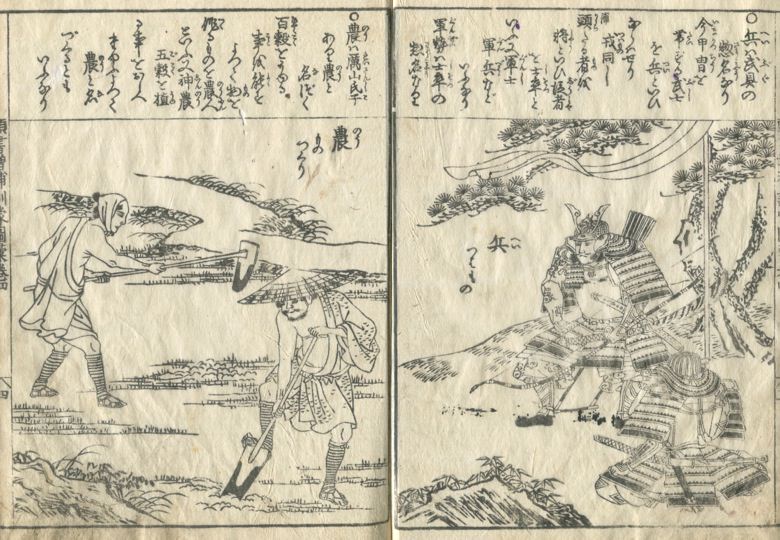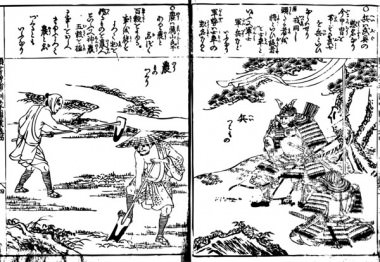The soldier who attached armor is drawn on the right.
It seems that “兵 (Hei)” also has implications like the general term of arms here.
The “samurai” who always attached armor is “Hei”, and “将 (Shyou)” adjusts “Hei”
Otherwise, “Shyou” is followed by “軍士 (Gunshi/strategist)” and “an army soldier.”
An “army” is a general term for these “rank and file.”
The farmer is drawn on the left.
The meaning was not understood although it was visible like the origin of “? mountain parishioner” of “農(nou)”
“100 cereals” refers to various grain, and it calls people who make this “Nojin (Farmer).”
Although “The Jinno five cereals are planted” is written, it seems that this is based on the anecdote to which it pointed so that the emperor “Jinno” who comes out in Chinese tradition might plant five cereals in people.
右には甲冑を付けた兵が描かれています。ここでは「兵(へい)」は武具の総称のような意味合いもあるようです。甲冑を常につけた「武士」が「兵」であり、「兵」をとりまとめるのが「将(しょう)」です。「将」はほかにも「軍士(ぐんし)」や「軍兵(ぐんぴょう)」を従えています。「軍勢(ぐんぜい)」とは、これら「士卒(しそつ)」の総称です。
左には農民が描かれています。「厲山氏子」が「農」の由来のように見えますが、意味はわかりませんでした。「百穀(ひゃっこく)」とはいろいろな穀物を指し、これを作る人々を「農人(のうみん)」と呼びます。「神農五穀を植える」と書かれていますが、これは中国の伝承に出てくる皇帝「神農」が民に五穀を植えるように指示した逸話に基づいていると思われます。

